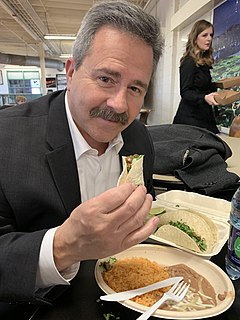A Quote by Louise Hay
The very person you find it hardest to forgive is the one you need to let go of the most. Forgiveness means letting go. It has nothing to do with condoning behavior, it's just letting the whole thing go. We do not have to know how to forgive. All we need to do is be willing to forgive. The Universe will take care of the hows.
Related Quotes
You forgive what you can, when you can. That's all you can do.To forgive does not mean overlooking the offense and pretending it never happened. Forgiveness means releasing our rage and our need to retaliate, no longer dwelling on the offense, the offender, and the suffering, and rising to a higher love. It is an act of letting go so that we ourselves can go on.
Forgiveness is a strange thing. It can sometimes be easier to forgive our enemies than our friends. It can be hardest of all to forgive people we love. Like all of life's important coping skills, the ability to forgive and the capacity to let go of resentments most likely take root very early in our lives.
Letting go is not the same as aversion, struggling to get rid of something. We cannot genuinely let go of what we resist. What we resist and fear secretly follows us even as we push it away. To let go of fear or trauma, we need to acknowledge just how it is. We need to feel it fully and accept that it is so. It is as it is. Letting go begins with letting be.
You must forgive everyone. Now many would say that "We cannot forgive, it's very difficult." But it's a myth whether you forgive or don't forgive. What do you do? You don't do anything. But when you don't forgive, then you are playing into wrong hands. That means you are torturing yourself, while those who have troubled you are quite happy.
If you feel "stuck" today, you may want to examine what you're holding on to. Be willing let go of past disappointments by choosing forgiveness. Who hurt you? Who wronged you? Release it to God. Do you need to forgive yourself? Do you need to receive God's forgiveness? Let go of the past so you can overcome disappointments and experience the bright future God has in store for you! There is freedom in forgetting!
When we forgive someone, we do not forget the hurtful act, as if forgetting came along with the forgiveness package, the way strings come with a violin. Begin with the basics. If you forget, you will not forgive at all. You can never forgive people for things you have forgotten about. You need to forgive precisely because you have not forgotten what someone did; your memory keeps the pain alive long after the hurt has stopped. Remembering is the storage of pain. It is why you need to be healed in the first place.
I use my work as catharsis. That's often the best thing that we can do, is to allow ourselves to rage because it's so rare that we get to. We're told to forgive - I don't want to! I don't want to forgive my abuser! I don't care to and I don't like that assumption that forgiveness makes me a better person. It's not authentic to me, my feelings and what I need. But everyone has their own way.
Forgiveness is an act of creation. You can choose from many ways to do it. You can forgive for now, forgive till then, forgive till the next time, forgive but give no more chances it’s a whole new game if there is another incident. You can give one more chance, give several more chances, give many chances, give chances only if. You can forgive part, all, or half of the offense. You can devise a blanket of forgiveness. You decide
We forgive, if we are wise, not for the other person, but for ourselves. We forgive, not to erase a wrong, but to relieve the residue of the wrong that is alive within us. We forgive because it is less painful than holding on to resentment. We forgive because without it we condemn ourselves to repeating endlessly the very trauma or situation that hurt us so. We forgive because ultimately it is the smartest action to take on our own behalf. We forgive because it restores to us a sense of inner balance.

































